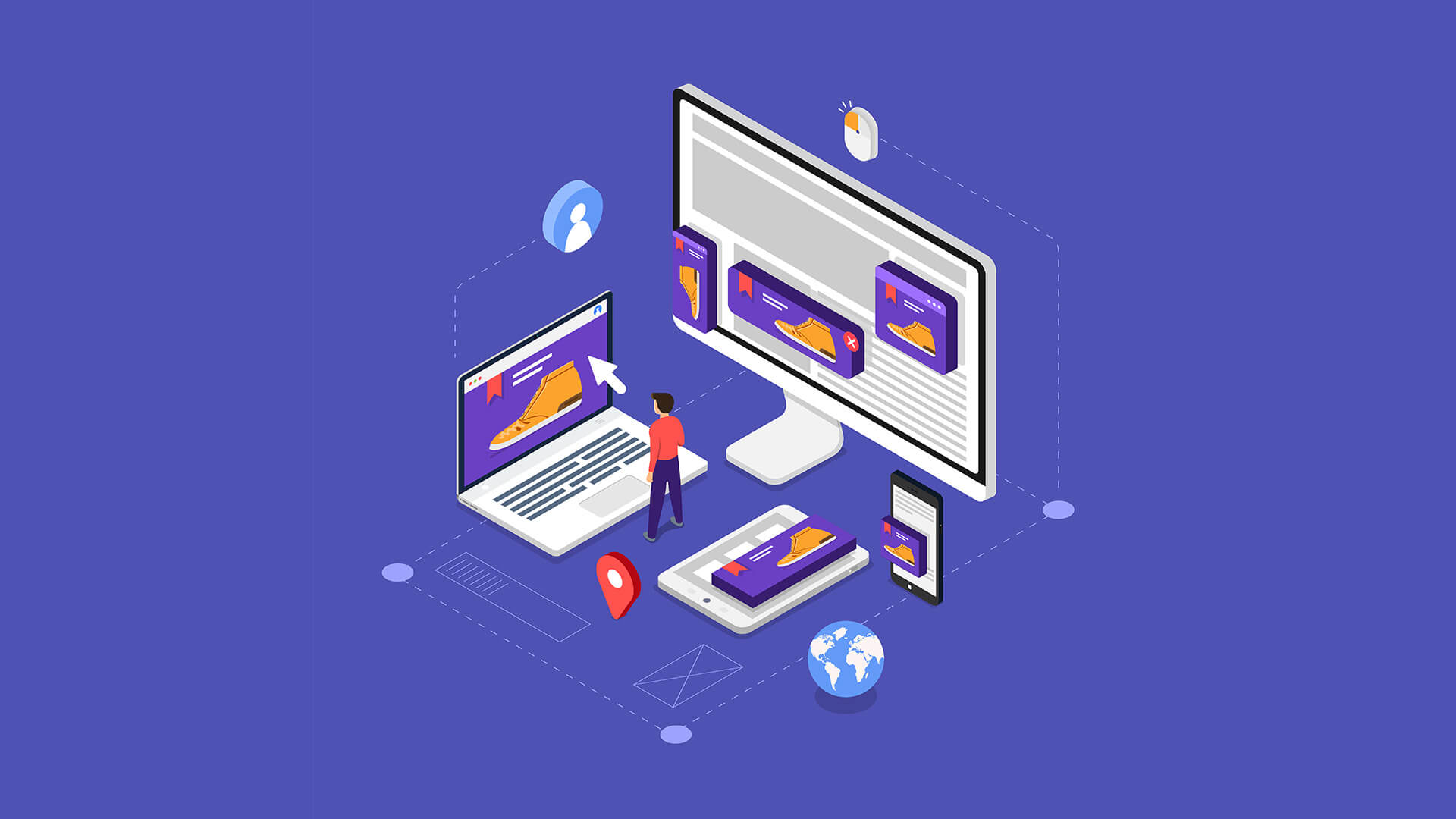Evolution of the Internet
The Internet is far more than just the World Wide Web. The Web was created in 1989 and became popular in the 1990s. In contrast, the Internet is a product of the1960s. The Internet is a vast network of networks that electronically connects millions of people worldwide. It was formed in 1968, when the U.S. Department of Defense’s Advanced Research Projects Agency (ARPA) funded what would become the first global computer network, the Advanced Research Projects Agency Network (ARPANET). ARPA later became the Defense Advanced Research Projects Agency (DARPA). The ARPANET allowed university and government engineers to research and work from any location on the network. ARPANET’s design featured multiple hosts and multiple connections among those hosts, which greatly reduced the chances of total network failure. There was no central hub, which would have created a point of vulnerability; rather, control was spread throughout the network. This decentralization resulted in a robust and reliable network that would continue to function even if some of the hosts were incapacitated.
In 1989, the Department of Defense decommissioned the ARPANET, and all the sites switched over to the National Science Foundation (NSF) network, called NSFnet. The NSF increased the number of supercomputers to five and added access to more networks, expanding the range of sites for businesses, universities, and government and military installations. The NSFnet, plus thousands of others, compose what has become the largest network of networks: the Internet.
The World Wide Web if the most important concept to remember is that the Web is not a network itself, like the Internet, but a set of software programs. These programs can be used on many different computer networks, including the Internet and your company’s computer network, the Web presents information through multimedia formats: graphics, sound, animation, and video. It employs several tools to provide a visual layout: hypertext links, browser software, and code structure.
The Web resembles an electronic library, and therefore each location or Web site is like a book. Each book has a contents page that directs you to the other pages in the book, as well as to all the other books in the electronic library. At the beginning of the internet these books are created using the Hypertext Markup Language (HTML), after a while there was another technologies that embedded with HTMLs along with interactive objects such as Java, JavaScript and VBScript can add extensive functionality to Web pages.
As we see in this brief overview for the evolution of the internet and the web, we notice that the web was first design to just provide information that could be accessed from desktop computers, in the early days of the web there was no mobile devices and there was no need to access it from such devices, but now a days when the mobile technology run very fast and when mobile become an important part of our daily life here accessing the Internet from mobile devices is becoming increasingly popular. Web access from mobile devices presents its own unique challenges, Mobile web users face a big problem that the majority of web content is tailored for desktop computers; there were many trials to solve this problem. The principal objective is to improve the user experience of the web when accessed from such devices.
Researchers try to find solution to make mobile web users able to run the web from their devices but they face many problem and they have to solve them, there was many problems that is related to the hard ware of the mobile devices like small display area, lower processor memory and many other limitations that we will discuss, and there is also some software problems like each mobile device run its own operating system and its web browser also, here in this thesis we will focus on the problem of different screen size and how can we adopt the web site to match this verity of screens.
There was much researches that was done in this area, some of them focus on how can we have two versions of each web site one for the desktop users and other for a mobile users and how the mobile version should be, some others focus on create only one version and have a small module that re-author the original web to have a new version that could match the mobile users, also there was some peoples say that we don’t have to make another version to match mobile we can run the desktop version if we don’t have much users for this web site.
OneHoster is one of the best web hosting companies in Egypt, we offer many web hosting packages in Egypt and middle east like, cPanel storage hosting packages, cloud hosting, domain registration, dedicated servers solution, Email hosting, WordPress hosting, web hosting upgrades and hosting renewals to suit your requirements to host your website for small and medium sized businesses. OneHoster is also one of the top 10 website design companies, and top 10 digital marketing companies in Egypt and Middle east.
“OneHoster’s Team”
Exceptional Performance for Improving Web Site Performance
Browsing Web site is an important example of client server model in the world, if you plan to create a web site you should know that the client browser will get a local copy of the desired page to your machine then render it from the local source, so if the page what the user want to show it is a large size user will go out and will not back again, this problem led us to design a very light page size, page size is the total of the page code and all its content like images, scripts, CSS and any content that the user will see it.
If we target a good exceptional performance for mobile web or even desktop user we must follow some practices for making web pages fast, Yahoo!’s exceptional performance team evangelizes best practices for improving web performance. They conduct research, build tools, write articles and blogs, and speak at conferences. Their best practices center on the rules for high performance web sites, the principal objective is to improve the user experience of the Web when accessed.
The Exceptional Performance team has identified a number of best practices for making web pages fast. The list includes 34 best practices divided into 7 categories:
Content
- Make Fewer HTTP Requests
- Reduce DNS Lookups
- Avoid Redirects
- Make Ajax Cacheable
- Post-load Components
- Preload Components
- Reduce the Number of DOM Elements
- Split Components across Domains
- Minimize the Number of iframes
- No 404s
Server
- Use a Content Delivery Network
- Add an Expires or a Cache-Control Header
- Gzip Components
- Configure ETags
- Flush the Buffer Early
- Use GET for AJAX Requests
Cookie
- Reduce Cookie Size
- Use Cookie-free Domains for Components
CSS
- Put Style sheets at the Top
- Avoid CSS Expressions
- Choose <link> over @import
- Avoid Filters
JavaScript
- Put Scripts at the Bottom
- Make JavaScript and CSS External
- Minify JavaScript and CSS
- Remove Duplicate Scripts
- Minimize DOM Access
- Develop Smart Event Handlers
Images
- Optimize Images
- Optimize CSS Sprites
- Don’t Scale Images in HTML
- Make favicon.ico Small and Cacheable
Mobile
- Keep Components under 25K
- Pack Components into a Multipart Document
OneHoster is one of the best web hosting companies in Egypt, we offer many web hosting packages in Egypt and middle east like, cPanel storage hosting packages, cloud hosting, domain registration, dedicated servers solution, Email hosting, WordPress hosting, web hosting upgrades and hosting renewals to suit your requirements to host your website for small and medium sized businesses. OneHoster is also one of the top 10 website design companies, and top 10 digital marketing companies in Egypt and Middle east.
“OneHoster’s Team”
Benefits of Using Cloud Computing
After presenting the cloud computing advantages and disadvantages, it is time to explain more about the cloud computing benefits. There is a difference between advantages and benefits. An advantage is a feature that surpasses the competition, but a benefit is how that feature impacts the users. One of the most key benefits of using cloud computing is that there are several different ways to deploy the cloud infrastructure. Cloud computing is not a one size that fits all affair, for example, the users may have a massive needs to deploy a larger number of servers, or run in house server’s type. Alternatively the users may only need a sip of processing power and consequently are not willing to buy and run a dedicated server. The cloud fits all these needs and there are some factors that control users when thinking about the using cloud, such as:
- Cost/benefit ratio.
- Speed of delivery.
- How much capacity the user will use.
- Whether the data is regulated.
- The organization’s corporate and IT structure.
Cloud computing benefits
- Scalability: The most important characteristic of using cloud computing is the scalability, which allows the user to scale up/down the computing power at any time. If a high demand to use a huge upswing in computing or there is a need for sudden demand on hardware resources, then use rather than buy,
- Simplicity: cloud gives the users an alternative of buying or configuring the hardware or software, so it makes it very simply because the user’s needs from the hardware or the applications will started immediately after requesting it and the cost will be a fraction depend on what their needs,
- Knowledgeable Vendors: The IT world move very fast and every day there a new technology that becomes popular. If the user hosts the application in house, there must be an investment in every update and this will cost much money and efforts. Using the cloud will relief the users from this task while reducing the cost,
- More Internal Resources: Using cloud free IT departments to work on important business related tasks while the service provider will be responsible for critical missions. There is no need to employee more manpower and train them to deal with these low level tasks. Network outages is a nightmare for the IT staff, and
- Security: one of the most important issues in any network is the security and there are many plenty of security risks when using a cloud from service providers, but reputable providers strive to keep their users safe and secure.
OneHoster is one of the best web hosting companies in Egypt, we offer many web hosting packages in Egypt and middle east like, cPanel storage hosting packages, cloud hosting, domain registration, dedicated servers solution, Email hosting, WordPress hosting, web hosting upgrades and hosting renewals to suit your requirements to host your website for small and medium sized businesses. OneHoster is also one of the top 10 website design companies, and top 10 digital marketing companies in Egypt and Middle east.
“OneHoster’s Team”
Challenges of Cloud Computing for Web Based Applications
As previously mentioned the advantages and disadvantages of cloud computing, this section discusses some factors that the users must consider when thinking about moving to cloud. Also Following are some of the barriers to cloud computing technology that the user could face and if these barriers are left unresolved, the cloud computing concept will ultimately destroyed. The barriers fall into several general points as follows:
- Technical issues: building a cloud computing is a big technical challenging that needs a significant resources, small companies or organizations cannot bear this burden. To establish a good cloud computing network there is a need to purchase hundreds or thousands of individual computers and servers, then setup them and configure all of them to work together. Users have to invest in software that will manage, control and monitor all of these servers, also feature Web based software have to be developed,
- Compatibility issues: all cloud applications is a Web based applications that use the Web technology in its implementation. If employees use a non word document application over the cloud and others use a word document, how to integrate both documents and allow the users to access any of them over the cloud or over the local private network,
- Concurrency: both services and applications provide resources that can be shared by clients in cloud computing system. There is therefore a possibility that several clients will attempt to access a shared resource at the same time,
- Internet issues: because cloud access is based on a good Internet connection, so the users without high speed Internet connections will have problems in working over cloud,
- Security issues: Securing cloud storage is a challenging task, for example, the saved documents in a Web based cloud system. What is the security guarantee that could be offered to the clients? How you guarantee that the document is there when you need it, and
- Business model issues: developing cloud Web based applications is a big investment project and companies should make money from offering cloud computing services. Some cloud providers, like Google, offers cloud services free of charge, which is a difficult way to generate revenue. Thus, if the service provider decided to charge for the cloud storage and services, how should these services is priced?
OneHoster is one of the best web hosting companies in Egypt, we offer many web hosting packages in Egypt and middle east like, cPanel storage hosting packages, cloud hosting, domain registration, dedicated servers solution, Email hosting, WordPress hosting, web hosting upgrades and hosting renewals to suit your requirements to host your website for small and medium sized businesses. OneHoster is also one of the top 10 website design companies, and top 10 digital marketing companies in Egypt and Middle east.
“OneHoster’s Team”
Browser Webkit & Web Sites
The most popular layout engine software component that is embedded in most Web browsers is called WebKit, which is a component that allow Web browsers to render Web pages. All the 9 top mobile Web browsers presented earlier use this WebKit. The WebKit’s HyperText Markup Language (HTML) and JavaScript code originally began as a fork of the KHTML, which was developed by the K Desktop Environment (KDE) project. It is the engine originally used by the Konqueror Web browser. KDE is an international free software community producing an integrated set of cross-platform applications designed to run on Linux. KDE javaScript (KJS) libraries from KDE is now been further developed by individuals from KDE. On April 3, 2013 Google announced that it had forked WebCore, a component of WebKit to be used in future versions of Google Chrome and Opera.
WebKit’s JavaScriptCore and WebCore components are available under the General Public License (GNU), while the rest of WebKit is available under Berkeley Software Distribution (BSD) licenses, which is a family of permissive free software licenses. WebCore responsible for layout, rendering, and Document Object Model (DOM) library for HTML and SVG and its license is under General Public License (GUN). JavaScriptCore is a framework that provides a JavaScript engine for WebKit implementations and provides this type of scripting in other contexts. JavaScriptCore is originally derived from KDE’s KJS library which is part of the KDE project and the Perl Compatible Regular Expressions (PCRE) library. JavaScriptCore has been improved with many new features and greatly improved performance.
On June 2, 2008, the WebKit project announced the rewriting of JavaScriptCore as “SquirrelFish”, a bytecode interpreter. The project evolved into SquirrelFish Extreme, announced on September 18, 2008, which compiles JavaScript into native machine code, eliminating the need for a bytecode interpreter and thus speeding up JavaScript execution. Last component of the Drosera is a JavaScript debugger that was included with the nightly builds of WebKit. It was named after Drosera, a genus of carnivorous plants. Drosera has been replaced by the inclusion of debugging functions in the Web inspector.


Benefits of the Mobile Web
The mobile Web or Web on the move is browsing the Internet from a device with small screen and limited resources. This gives mobile users many benefits such as:
- Constant Connectivity
Accessing the Web from mobile devices provides the users with around the clock access to the Internet regardless of their location.
- Interactive Capabilities
Mobile Web offers users the participatory experience of the read/write Web in the mobile devices of their hand.
- Location Aware
Many of today’s smart phones and tables have global positioning system (GPS) capabilities which make them aware of where they are at any time.
- Limitless Access
Mobile Web encompasses the whole Web, not only those sites which have been specially designed for mobile browsing.
OneHoster is one of the best web hosting companies in Egypt, we offer many web hosting packages in Egypt and middle east like, cPanel storage hosting packages, cloud hosting, domain registration, dedicated servers solution, Email hosting, WordPress hosting, web hosting upgrades and hosting renewals to suit your requirements to host your website for small and medium sized businesses. OneHoster is also one of the top 10 website design companies, and top 10 digital marketing companies in Egypt and Middle east.
“OneHoster’s Team”
Browsing Web Sites with Mobiles and Desktops
The selection of accessing the Web from mobile devices or from desktop computers usually depends on the user needs and location. The use of desktop computers provides larger screen size, broadband connection, the ability to run many applications simultaneously, and the use of tabs for browsing several sites. Desktop computers utilize a pointing device to click over the different fields and buttons to access, hence the chance to get a miss click is very rare. In case of mobile devices , the use of touch taps over the screen by fingers or by using a stylus increases the chances of miss tap due to the fact that the users are touching the area of the screen not the exact pixels. Reversing an action in a desktop browser for example is easy to handle when compared to that of a mobile browser which is more time consuming.
As mobile Internet is growing fast, for example, use of mobile search has grown by 500% over the past two years, while average Smartphone usage almost tripled in 2011. Many researchers are predicting that mobile Internet use will replace the desktop Internet use and is predicted to overtake in 2015. Mobile Internet usage is now a mass market with 69% of users having connection to the Internet through a mobile device in 2012. Smartphones are the most popular mobile access method to the Internet with 61% of respondents using Smartphones versus 37% for notebooks and 22% for tablets. Age is a differentiating factor with 82% of those aged 14-29 accessing the Internet on a mobile device versus only 45% for people above 50


OneHoster is one of the best web hosting companies in Egypt, we offer many web hosting packages in Egypt and middle east like, cPanel storage hosting packages, cloud hosting, domain registration, dedicated servers solution, Email hosting, WordPress hosting, web hosting upgrades and hosting renewals to suit your requirements to host your website for small and medium sized businesses. OneHoster is also one of the top 10 website design companies, and top 10 digital marketing companies in Egypt and Middle east.
“OneHoster’s Team”
Future of Web and its Applications
Researchers aims to enable users to access all their home devices and to manage them all from mobile devices, or enable users to do all their life activates through mobile devices. Mobile users could check where is the car is parked now or even access and manage it. Client can order car from limousine service provider and most companies now enable their clients to check where the car is and know how far it is. This may sound like science-fiction right in the past, but most of this technology is available now in several parts of the world.
This evolution of handheld devices combined with new high-speed wireless data networks made browsing the mobile Internet a more compelling experience. This phenomenon is like the transition of the Internet when broadband access became widely attainable. The mobile Web is turning a corner and becoming useful to most users. In this article a survey of the literature concerning the Mobile Web and the cloud computing technologies is presented. The main concern is to provide the foundations for merging the two technologies in a mobile cloud computing model .
The mobile Web is simply accessing the World Wide Web (WWW) from mobile devices ranging from cellular phones to iPod touch. Such access does not require a desktop computer or a fixed landline connection. It constitutes the entirety of the Internet and is not limited to websites which have been specifically designed for mobile viewing. Handsets and mobile phones which have Web capabilities can search and browse the Internet from any place with a cellular signal available. Websites which are made especially for the small screen appear as scaled-back versions of their desktop counterparts, often with a numbered menu system for quick access to content. Web destinations which do not have mobile versions appear as if they were squeezed onto the tiny screen, and oftentimes have overlapping menus and links.


A study shows that by the end of 2013, the number of mobile connected devices will exceed the number of people on earth, and by 2017 there will be nearly 1.4 mobile devices per capita. There will be over 10 billion mobile-connected devices in 2017, including machine-to-machine (M2M) modules-exceeding the world’s population at that time (7.6 billion). Global mobile data traffic grew 70 percent in 2012. Global mobile data traffic reached 885 petabytes per month at the end of 2012, up from 520 petabytes per month at the end of 2011.
Mobile Web access today still suffers from interoperability and usability problems. This is partly due to the incompatibility of the format of much of the information available on the Internet with mobile devices, and partly due to the small processing power of the hard ware of mobile devices. The fact that most of the Internet video applications can be categorized as cloud applications, the mobile cloud traffic follows a curve similar to that of video applications. Mobile devices have memory and speed limitations that might prevent them from acting as media consumption devices, which can be substituted for cloud applications and services . For example, cloud applications and services such as Netflix, YouTube , Pandora, and Spotify allow mobile users to overcome the memory capacity and processing power limitations of mobile devices. Globally, cloud applications will account for 84 percent of total mobile data traffic in 2017, compared to 74 percent at the end of 2012.
Another key finding from the data is the type of application generating these data consumption trends. For smart phones and tablets globally, the top three application types are the same for both device types, although they differ in percentage rates. Video streaming and communications applications such as YouTube , Hulu, and Netflix rank highest on both device platforms, although data consumption is slightly higher on tablets. Information applications rank second on tablets (Google Maps, PulseNews, and Wall Street Journal). Social networking (Facebook and Twitter) ranks higher on smart phone, perhaps because the increased mobility of smart phones that allows users to instantly connect socially.
OneHoster is one of the best web hosting companies in Egypt, we offer many web hosting packages in Egypt and middle east like, cPanel storage hosting packages, cloud hosting, domain registration, dedicated servers solution, Email hosting, WordPress hosting, web hosting upgrades and hosting renewals to suit your requirements to host your website for small and medium sized businesses. OneHoster is also one of the top 10 website design companies, and top 10 digital marketing companies in Egypt and Middle east.
“OneHoster’s Team”
8 Web Design Challenges to Tackle When Designing for the Mobile Web Site
The top 8 design challenges to tackle when designing for the mobile Web . Many of these challenges should also be taken into consideration when designing mobile apps as well.
- Lack of a hover state
The ability to hover mouse over an image, icon or text to see reference information or options, is absent. On mobile platforms and devices, features can generally be accessed in two ways, visibly or through convention. Visible content is accessible visually from navigation elements that are built into the design or application . Convention features utilize mobile design conventions or gestures such as swiping, shaking or pull to refresh/reload.
2. Slow and error-prone typing
Typing on a touch keyboard is often a slow and error prone experience no matter what size your fingers are. Helping the users with features like auto complete functionality, inline & address validation and allowing users to review pages before submission can help with this issue.
3. Reduced context
Smaller screens limit the amount of information that can help keep a user on track especially those who need to zoom in to view content in a readable state.
4. Decreased accuracy of clicking links and button
Small size problem and proximity of clickable (or touchable) elements, control buttons, and navigation bars are severe, especially with the lack of a hover state challenge.
5. No right-click
As the right click menu acts as a context based shortcut for common features, most mobile devices lack this option. In some brands, try using a ‘tab-and-hold’ gesture instead.
6. Poor connectivity
Mobile devices are usually associated with the intermittent connectivity issues and the slow download speed. It’s really a two pronged issue:
- No connection: While users probably won’t expect offline mode from the website provider, at least there must be a way to handle lost connections gracefully
- Slow download speeds: If Web content should be usable on slower connections, then it is highly desirable to make footprint as small as possible by implementing aggressive asset caching, Using Cascading Style Sheets (CSS3), etc.
7. Slow hardware
While the performance of touch devices is improving rapidly, still are slow when compared with desktop computers. Issues left for web designers of slow hardware include transitions effects and animations.
8. Usage situation
Due to the fact that the unique feature of mobile devices is mobility, there must be a consideration of the impact of real world distractions, a speaker announcement, walking in traffic, etc. Another and possibly important sources of distractions are the digital interruptions text messages, phone calls, push notifications, etc.
The mobile browsers are associated with the same limitations like the mobile Web, such as:
- Small screen size: This makes it difficult or impossible to see text and graphics available on the standard size of a desktop computer screen,
- Lack of windows: Ability to open several windows simultaneously and switch easily
- Navigation: No mouse, thereby limiting the flexibility in navigation
- Lack of JavaScript and cookies: Most mobile devices do not support client-side scripting and storage of cookies except some smart phones and iPhones, which is not suitable for uniquely identifying visitors using mobile devices
- Speed: Most mobile devices speed of service is very slow, often slower than dial-up Internet access
- Types of pages content like (Flash, PDF …)
- Compressed pages
- Size of messages: Many mobile devices have limitation on the number of characters that can be sent in an email message
- Cost: Access and bandwidth charges levied by cell phone networks are much higher than those for fixed-line Internet access.


Currently, vendors of mobile devices attempt to solve most of the previous problems thought developing some strategies like increasing the screen size, enhancing the hard resources (CPU & memory), developing new Operating Systems (OS), improving the Global System for Mobile Communications (GSM) network, or adding network cards to provide the wireless access thought the Wi-Fi technology.
OneHoster is one of the best web hosting companies in Egypt, we offer many web hosting packages in Egypt and middle east like, cPanel storage hosting packages, cloud hosting, domain registration, dedicated servers solution, Email hosting, WordPress hosting, web hosting upgrades and hosting renewals to suit your requirements to host your website for small and medium sized businesses. OneHoster is also one of the top 10 website design companies, and top 10 digital marketing companies in Egypt and Middle east.
“OneHoster’s Team”
Mobile Limitation and Mobile Web Sites Challenges
The widespread deployment of Web enabled mobile devices made them a target of choice for content creators. Understanding their strengths and their limitations, and using technologies that fit these conditions are keys to create success mobile friendly Web content . The reasons for that include the challenges posed by network costs & delays, memory & Central Processing Unit (CPU) limitations, and keyboard & pointing devices differences. As importantly, mobile devices feature a growing set of advantages with their personal, always available nature, and the increasingly context-aware capabilities.
Wireless Fidelity (Wi-Fi) is now the most mature technology of using wireless for Internet access. Energy limitations of mobile devices are still an issue and to deal with this limitation, the wireless standard 802.11 includes a Power Saving Mode (PSM), but not much attention has been devoted by the research community to understand the performance in depth. PSM is able to save up to 90% of the energy spent when no energy management is used, however PSM is not the optimal solution for energy management. The objective of the 802.11 PSM is to let the wireless interface of a mobile host in the active mode only for the time necessary to exchange data, and turn it off in sleep mode whenever it becomes idle. In a Wi-Fi hotspot, this is achieved by exploiting the central role of the access point. Each mobile host within the hotspot lets the access point know whether it utilizes the PSM or not. Since the access point relays every frame from/to any mobile host, it buffers frames addressed to mobile hosts using the PSM every beacon interval, usually 100 ms, the access point broadcasts a special frame named beacon.


The mobile Web is still evolving and this is an exciting time of early development, but there are still some hurdles that need to be overcome. As seen familiar brands such as Facebook and MySpace porting their presences to the mobile domain, users will see a wider adoption of this channel by the mainstream. When creating content for mobile devices, the designers are usually confronted with numerous development standards and technologies to choose from. In addition, hundreds of different mobile devices with varying functional capabilities, screen resolutions, and sizes are under consideration as well as more than 40 distinct mobile browsers. This lack of uniformity renders testing mobile websites and applications for universal compatibility a near impossibility. Mobile Web developers also brave the high expectations of mobile Web users who anticipate the same caliber experience on their handsets that they enjoy on the desktop Web.
OneHoster is one of the best web hosting companies in Egypt, we offer many web hosting packages in Egypt and middle east like, cPanel storage hosting packages, cloud hosting, domain registration, dedicated servers solution, Email hosting, WordPress hosting, web hosting upgrades and hosting renewals to suit your requirements to host your website for small and medium sized businesses. OneHoster is also one of the top 10 website design companies, and top 10 digital marketing companies in Egypt and Middle east.
“OneHoster’s Team”
Overview About Mobile Devices
Today there are hundreds of mobile phones in the market; mobile phones are not the only mobile devices there are also pocket computer devices like PDAs, micro notebooks and handheld notebooks, here I will take about mobile phones, PDA and some other mobile devices.
Mobile Phones
The largest segment for mobile devices, they have specialty processor and there own operating system the widely used is Symbian or windows mobile but there is also others, At the first development of mobile phone its use was voice and text messages but the technology over the years go fast for other uses like play music, photos, run applications and many other options this change the use of mobile from simple feature phone to smart phone.
The standard input for mobile phones is a 12 keypad with additional function keys, some other have joystick that can be used in navigation, with wider screen models there was other style available like input through touch screen keyboard like iPhone, some others have a keyboard input like Nokia E61, 63 or 71. Today most of mobile phones come with web browser like opera mini which is the most popular web browser some other come with different types of browsers.
Personal Digital Assistants (PDA)
Personal Digital Assistants (PDA) is the other class of mobile devices, it contain many other business features and productivity applications like office and emails, the most important that it can have their custom software, they have QWERTY keyboard in the device or screen, phone function is add on for PDSs, this type of devices are very popular with business users and merging phone with the device itself.
Other Mobile Devices
Micro notebooks and handheld notebooks can be classified as a mobile device, technology expect many hybrid devices to come up in the next few years that will have higher computing power and mobile communication technology.
OneHoster is one of the best web hosting companies in Egypt, we offer many web hosting packages in Egypt and middle east like, cPanel storage hosting packages, cloud hosting, domain registration, dedicated servers solution, Email hosting, WordPress hosting, web hosting upgrades and hosting renewals to suit your requirements to host your website for small and medium sized businesses. OneHoster is also one of the top 10 website design companies, and top 10 digital marketing companies in Egypt and Middle east.
“OneHoster’s Team”










